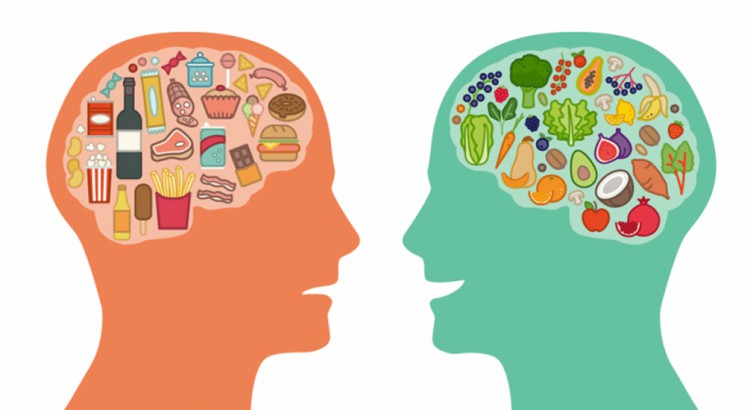
We’ve spoken previously about the link between fermented and probiotic food and mental health. How enforced self-isolation brought on by the coronavirus pandemic could lead to an increase in mental health problems.
Our fast-paced lifestyles, added to the fibre-poor Western diet of processed foods, may be partly to blame. These have added to the mental pressure of everyday existence. The stress and poor dietary habits have added to the imbalance of our gut bacteria. This reduces the beneficial bugs. There are more microbes which have a poor effect on our physical and mental health.
There’s an imbalance in our gut microbiome
Our bodies contain trillions of bacterial cells. The latest research estimates a ratio of 50:50 human to bacterial cells. It’s incredible to think that half the cells in our body belong to another species. But many species are beneficial. Both to our physical and mental health.
So can fermented foods improve mental health?

While the research is still in its early days, it appears that science supports the notion of the need for a good balance of gut bacteria for the benefit of good mental health.
A 2017 population-wide study found that people with depression lack certain groups of gut microbes in their gut. Prof. Jeroen Raes said the study had shone new light on the gut microbiome’s influence on mental health.
“In our population-level study, we identified several groups of bacteria that co-varied with human depression and quality of life across populations,” he said.
Prof Reas added that while the link between the gut and mental health had been studied before, most of the research had been done on animals.
The gut is closely connected to the brain and influences our brain in profound ways. Fermented and probiotic food and drinks have had an important role to play in this renaissance of thought.
The gut-brain axis

This refers to the way the gut communicates to the brain and vice versa. The gut-brain axis is the link between the two nervous systems, the central nervous system and the enteric nervous system.
There are a number of ways the microbes in the gut microbiome can interact with the brain. Through the vagus nerve, hormone signalling, the immune system and more. A more detailed explanation of how these connections work is beyond the scope of this article but for a fuller understanding of these mechanisms, please see this Psych Scene Hub article.
ENS
The gut is now being described as our second brain. Science has described this as the “enteric nervous system (ENS)”. While the ENS appears to not be capable of thought as our first brain, it seems to influence our gut can influence our health and wellbeing in other ways.
For example, researchers have found people with functional bowel problems such as irritable bowel syndrome (IBS), diarrhoea, constipation and other stomach ailments have a higher-than-average chance of experiencing anxiety and depression. This according to Jay Pasricha, M.D., the director of the Centre for Neurogastroenterology at Johns Hopkins University.
It is the signals the gastrointestinal system sends to our brain that can trigger these changes in mood, says Pasricha.
“For decades, researchers and doctors thought that anxiety and depression contributed to these problems. But our studies and others show that it may also be the other way around,” he said in an article published by the university.
“That’s important, because up to 30 to 40 percent of the population has functional bowel problems at some point, ” he added.
The research on the gut-brain axis is still relatively and holds great promise for the future. Pasricha said one of the big areas for further study was the possible link between the digestive tract and cognitive skills such as memory and other thinking skills.
The connection between the gut and brain
However, science is already making the link in other key areas of the gut’s influence on the brain.
The intimate connection between the gut and brain has been established by science with the promise that the best research appears still to be done on how this affects our mental health.
The link between fermented foods and mental health is clear. One of the best ways to rebalance the gut microbiome in favour of the friendly bacteria is to eat and drink more fermented food and drink. This means more friendly bacteria that are present in the fermenting process such as the Lactobacillus species. Consuming these fermented and probiotic food will help balance the gut microbiome in favour of the friendly bugs.
At Gutsy we have committed to providing you with the finest quality fermented foods. Our vegetables are raw, organic and sourced locally. We don’t pasteurise our fermented foods. This means the friendly bugs that are great for our physical and mental health aren’t destroyed.
Try our sauerkraut, or kimchi (the spicier Korean version) to supplement your probiotic diet. Contact us to let us know what you think!




